- Home
- Robin Cook
Crisis
Crisis Read online
Number one New York Times bestselling author Robin Cook surpasses the “top form” (The Virginian-Pilot) he exhibited in Marker with this explosive novel of a doctor’s worst nightmare…
CRISIS
A partner in an exclusive concierge medical practice, Dr. Craig Bowman has reached an impressive level of success. But this idyllic situation comes to a grinding halt when he’s served with a summons for medical negligence—and things get much, much worse.
Enter Dr. Jack Stapleton, a medical examiner in New York City and Craig’s brother-in-law, who agrees to travel to Boston to offer his forensic services and expert-witness experience to Craig’s beleaguered defense attorney. But when Jack’s irreverent suggestion to exhume the corpse, and thereby disprove the alleged malpractice, is taken seriously, he opens a Pandora’s box. As Craig’s life and career are put on the line, Jack is on the verge of making a most unwelcome discovery, of tremendous legal and medical significance—and there are people who will do anything to keep him from learning the truth.
“A completely unexpected ending.”
—USA Today
“Shocking.”
—Booklist
“Focuses on a timely topic…most readers should enjoy the ride.”
—Publishers Weekly
Praise for
MARKER
“A highly entertaining read.”
—USA Today
“A master of medical mystery…a fun page-turner…a perfect, explosive ending.”
—The Boston Globe
“Cook is in top form…a pulse-pounding ending.”
—The Virginian-Pilot
“[A] gripping medical chiller…the denouement crackles to an electric edge-of-the-seat finale.”
—Publishers Weekly (starred review)
“Fans of Cook’s previous thrillers will be happy to see the return of two popular characters.”
—Booklist
Praise for
ROBIN COOK
and his bestselling novels
“Straight out of today’s headlines.”
—UPI
“Holds you page after page.”
—Larry King, USA Today
“Shocking and thought provoking.”
—The Associated Press
“Dr. Robin Cook certainly knows how to tell a story.”
—The Detroit News
“Fast…exciting…spine-tingling.”
—The Denver Post
“Stern and bracing…[a] suspenseful thriller.”
—San Francisco Chronicle
“A real grabber.”
—Los Angeles Times
“A riveting plot, filled with action.”
—The San Diego Union-Tribune
“Gripping.”
—The New York Times Book Review
“A spellbinder…unbearable tension.”
—Houston Chronicle
TITLES BY ROBIN COOK
Crisis
Marker
Seizure
Shock
Abduction
Vector
Toxin
Invasion
Chromosome 6
Contagion
Acceptable Risk
Fatal Cure
Terminal
Blindsight
Vital Signs
Harmful Intent
Mutation
Mortal Fear
Outbreak
Mindbend
Godplayer
Fever
Brain
Sphinx
Coma
The Year of the Intern
CRISIS
ROBIN COOK
BERKLEY BOOKS, NEW YORK
THE BERKLEY PUBLISHING GROUP
Published by the Penguin Group
Penguin Group (USA) Inc.
375 Hudson Street, New York, New York 10014, USA
Penguin Group (Canada), 90 Eglinton Avenue East, Suite 700, Toronto, Ontario M4P 2Y3, Canada
(a division of Pearson Penguin Canada Inc.)
Penguin Books Ltd., 80 Strand, London WC2R 0RL, England
Penguin Group Ireland, 25 St. Stephen’s Green, Dublin 2, Ireland (a division of Penguin Books Ltd.)
Penguin Group (Australia), 250 Camberwell Road, Camberwell, Victoria 3124, Australia
(a division of Pearson Australia Group Pty. Ltd.)
Penguin Books India Pvt. Ltd., 11 Community Centre, Panchsheel Park, New Delhi—110 017, India
Penguin Group (NZ), 67 Apollo Drive, Rosedale, North Shore 0745, Auckland, New Zealand
(a division of Pearson New Zealand Ltd.)
Penguin Books (South Africa) (Pty.) Ltd., 24 Sturdee Avenue, Rosebank, Johannesburg 2196, South Africa
Penguin Books Ltd., Registered Offices: 80 Strand, London WC2R 0RL, England
This is a work of fiction. Names, characters, places, and incidents either are the product of the author’s imagination or are used fictitiously, and any resemblance to actual persons, living or dead, business establishments, events, or locales is entirely coincidental.
CRISIS
A Berkley Book / published by arrangement with the author
PRINTING HISTORY
G. P. Putnam’s Sons hardcover edition / July 2006
Berkley premium edition / August 2007
Copyright © 2006 by Robin Cook.
Cover design copyright © 2006 by Thomas Tafuri.
All rights reserved.
No part of this book may be reproduced, scanned, or distributed in any printed or electronic form without permission. Please do not participate in or encourage piracy of copyrighted materials in violation of the author’s rights. Purchase only authorized editions.
For information, address: The Berkley Publishing Group,
a division of Penguin Group (USA) Inc.,
375 Hudson Street, New York, New York 10014.
ISBN: 978-1-101-20609-6
BERKLEY®
Berkley Books are published by The Berkley Publishing Group,
a division of Penguin Group (USA) Inc.,
375 Hudson Street, New York, New York 10014.
BERKLEY® is a registered trademark of Penguin Group (USA) Inc.
The “B” design is a trademark belonging to Penguin Group (USA) Inc.
PRINTED IN THE UNITED STATES OF AMERICA
10 9 8 7 6 5 4 3 2 1
If you purchased this book without a cover, you should be aware that this book is stolen property. It was reported as “unsold and destroyed” to the publisher, and neither the author nor the publisher has received any payment for this “stripped book.”
ACKNOWLEDGMENTS
As usual in writing my fact-based novels, I’ve had to rely on friends and acquaintances to answer my innumerable pesky questions. It was especially important for Crisis, since the story line bridges medicine and law. Although I thank everyone who was graciously willing to help, those whom I would particularly like to cite are (in alphabetical order):
John W. Bresnahan, investigator, Division of Professional Licensure, Commonwealth of Massachusetts
Jean R. Cook, psychologist
Joe Cox, J.D., LL.M., tax and estate-planning attorney
Rose Doherty, academician
Mark Flomenbaum, M.D., Ph.D., Chief Medical Examiner, Commonwealth of Massachusetts
Peter C. Knight, J.D., malpractice attorney
Angelo MacDonald, J.D., criminal law attorney, former prosecutor
Gerald D. McLellan, J.D., family law attorney, former judge
Charles Wetli, M.D., Chief Medical Examiner, Suffolk County, New York
This book is dedicated to
the contemporary medical professionalism
as promulgated by the Physician Charter,
in hope that it takes root and flourishes.…
&nb
sp; Make way, Hippocrates!
The laws of conscience,
which we say are born of nature,
are born of custom.
—MONTAIGNE
Table of Contents
Prologue
1
2
3
4
5
6
7
8
9
10
11
12
13
14
15
16
17
18
19
20
21
22
23
24
Epilogue
Author’s Note
About the Author
PROLOGUE
September 8, 2005
Autumn is a glorious season, despite its frequent use as a metaphor for approaching death and dying. Nowhere is its invigorating ambience and riotous color more apparent than in the northeastern United States. Even in early September the hot, hazy, humid days of the New England summer are progressively replaced by crystalline days with cool, clear, dry air and azure skies. September 8, 2005, was a case in point. Not a cloud marred the translucent sky from Maine to New Jersey, and within the macadam maze of downtown Boston and the concrete grid of New York City, the temperature was a comfortable seventy-seven degrees Fahrenheit.
As the day drew to a close, two doctors coincidently and reluctantly fumbled to pull their ringing cell phones from their belt clips in their respective cities. Neither was happy about the intrusion. Each was fearful that the melodic ring would herald a crisis that would require their professional attention and presence. An inopportune interruption, as both individuals were anticipating interesting personal evening activities.
Unfortunately, the doctors’ intuitions were correct, since both calls were to give credence to autumn’s metaphorical reputation. The call in Boston concerned someone about to die with the acute onset of chest pain, profound weakness, and difficulty breathing, while the one in New York was about someone recently but clearly already dead. Both situations were emergencies for the respective physicians, necessitating that they put their private plans on hold. What the doctors didn’t know was that one of the calls would initiate a sequence of events that would seriously impact them both, put both in jeopardy, and turn them into bitter enemies, and the other call would ultimately put a different spin on the first!
BOSTON, MASSACHUSETTS
7:10 p.m.
Dr. Craig Bowman let his arms dangle at his sides for a moment to relieve his aching forearm muscles. He had been standing in front of the mirror that was attached to the backside of the closet door, struggling to tie a black formal bow tie. He’d worn a tuxedo at most a half dozen times in his life, the first time at his high-school prom and the last time when he got married, and on all of those previous occasions, he’d been satisfied to snap on a pre-tied model that came with the rented tux. But now, in his reincarnation of himself, he wanted the genuine article. He’d bought himself a brand-new tuxedo and wasn’t about to settle for a fake tie. The trouble was, he really didn’t know how to tie it and had been embarrassed to ask the salesclerk. At the time, he hadn’t been worried since he figured it would somehow be similar to tying his shoes.
Sadly, it was proving to be a lot different, and he had been attempting to tie the blasted thing for a good ten minutes. Luckily, Leona, his new and dynamite secretary-cum-file clerk and even newer companion, had been preoccupied with her makeup in the bathroom. Worst case, he’d have to ask her if she knew how to do it. Craig really didn’t want to do that. They hadn’t been seeing each other socially that long, and Craig preferred that she maintain her apparent belief in his sophistication, fearing he’d otherwise never hear the end of it. Leona had what his matronly receptionist-secretary and his nurse called a “mouth.” Tactfulness wasn’t her strong suit.
Craig shot a quick glance in Leona’s direction. The door to the bathroom was ajar, and she was doing her eyes, but all he could see was a side view of her curvaceous twenty-three-year-old derriere covered with a lustrous pink silk crepe. She was on her tiptoes, leaning over the sink to get closer to the mirror. A fleeting, self-satisfied smile passed over Craig’s face as he thought of them walking down the aisle of Symphony Hall that evening, which was why they were getting decked out in their finery. Compensating for being a “mouth,” Leona was a “looker,” especially in the low-cut dress that they had recently bought at Neiman Marcus. He was sure she was going to turn some heads and that he’d be dodging some envious looks from fellow forty-five-year-old men. Craig realized such feelings were rather juvenile, to say the least, but he’d not felt them since that first time he’d worn a tuxedo, and he was going to enjoy it.
Craig’s smile faltered when the question occurred to him whether any of his and his wife’s friends might be there in the audience. His goal certainly wasn’t to humiliate anyone or hurt anyone’s feelings. Yet he doubted he’d see any acquaintances, because he and his wife had never gone to the symphony, nor had any of their few friends, who were mostly overworked physicians like himself. Taking advantage of the city’s cultural life hadn’t been part of their particular suburban lifestyle, thanks to the hours a typical practice of medicine demanded.
Craig had been separated from Alexis now for six months, so it wasn’t unreasonable to have a companion. He didn’t think it was an age issue. As long as he was with an adult woman of a reasonable, postcollege age, it shouldn’t matter. After all, being seen out and about with a date was going to happen sooner or later, as active as he’d become. In addition to regular attendance at the symphony, he’d become a regular at a new gym, as well as at the theater, the ballet, and a number of other activities and social gatherings that normal, educated people participated in in a world-class city. Since Alexis had consistently refused to go along with his new persona right from its inception, he now felt he was justified to accompany whomever he wanted. He wasn’t going to be held back from becoming the person he aspired to be. He’d even joined the Museum of Fine Arts and was looking forward to exhibition openings, despite never having ever been to one. He’d had to sacrifice enjoying such cultural activities during the arduous and isolating effort of becoming a doctor—particularly, becoming the best doctor he could be—which meant that for ten years of his adult life, he was absent from the hospital only to sleep. And then once he’d finished his specialty training in internal medicine and hung out his proverbial shingle, he’d had even less time for personal pursuits of any kind, including, unfortunately, much family life. He’d become the archetypal, intellectually provincial workaholic with no time for anyone but his patients. But all that was changing, and regrets and guilt, particularly about family issues, had to be put on hold. The new Dr. Craig Bowman had left behind the lockstep, hurried, unfulfilling, and uncultured workaday life. He knew that some people might call his situation a midlife crisis, but he had a different name for it. He called it a rebirth or, more accurately, an awakening.
Over the previous year, Craig had become committed to—even obsessed with—transforming himself into a more interesting, happier, well-rounded, better person and, because of it, a better doctor. On the desk of his in-town apartment was a pile of catalogues from various local universities, including Harvard. He intended to take classes in humanities: maybe one or two a semester to make up for lost time. And best of all, thanks to his makeover, he’d been able to return to his beloved research, which had completely fallen by the wayside once he’d started practice. What had started out in medical school as a remunerative job doing scut work for a professor studying sodium channels in muscle and nerve cells had turned into a passion when he was elevated to the level of a fellow researcher. Craig had even coauthored several scientific papers to great acclaim while he’d been a medical student and then resident. Now he was back at the bench, able to spend two afternoons a week in the lab, and he loved it. Le
ona called him a Renaissance man, and although he knew the description was premature, he thought that with a couple of years of effort, he might come close.
The origin of Craig’s metamorphosis had been rather sudden and had taken him by complete surprise. Just over a year previously, and quite serendipitously, his professional life and practice had changed dramatically with the double benefit of significantly raising his income as well as his job satisfaction. All at once it had become possible for him truly to practice the kind of medicine he’d learned in medical school, where patients’ needs eclipsed the arcane rules of their insurance coverage. Suddenly, Craig could spend an hour with someone if the patient’s situation required it. Appropriately, it had become his decision. In one fell swoop, he’d been freed of the dual scourge of falling reimbursements and rising costs that had forced him to squeeze more and more patients into his busy day. To get paid, he no longer had to fight with insurance personnel who were often medically ignorant. He’d even started making house calls when it was in the patient’s best interest, an action that had been unthinkable in his former life.
The change had been a dream come true. When the offer had unexpectedly come over the transom, he’d told his would-be benefactor and now partner that he’d have to think about it. How could he have been so stupid not to agree on the spot? What if he had missed the opportunity to grab the brass ring? Everything was better, save for the family problem, but the root of that issue was how submerged he’d been from day one in his former professional situation. Ultimately, it had been his fault, which he freely admitted. He had let the exigencies of current medical practice dictate and limit his life. But now he certainly wasn’t drowning, so maybe the family difficulties could be resolved in the future, given enough time. Maybe Alexis could be convinced how much better all their lives could be. Meanwhile, he resolved to enjoy bettering himself. For the first time in his life, Craig had free time and money in the bank.
With an end of the bow tie in each hand, Craig was about to try tying it again when his cell phone rang. His face fell. He glanced at his watch. It was ten after seven. The symphony was to start at eight thirty. His eyes switched to the caller ID. The name was Stanhope.

 Shock
Shock Mutation
Mutation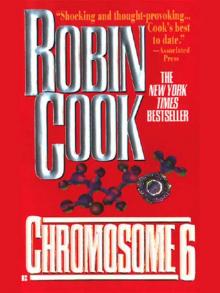 Chromosome 6
Chromosome 6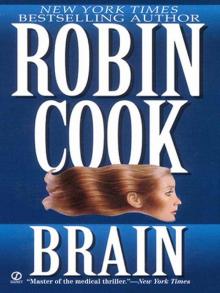 Brain
Brain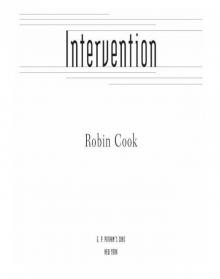 Intervention
Intervention Invasion
Invasion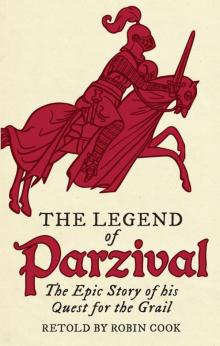 The Legend of Parzival: The Epic Story of His Quest for the Grail
The Legend of Parzival: The Epic Story of His Quest for the Grail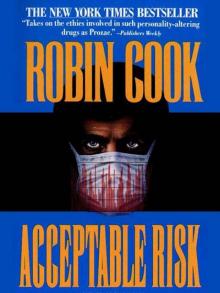 Acceptable Risk
Acceptable Risk Cell
Cell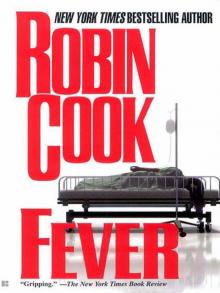 Fever
Fever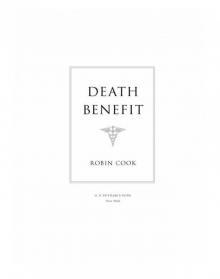 Death Benefit
Death Benefit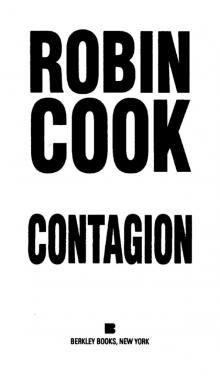 Contagion
Contagion Mindbend
Mindbend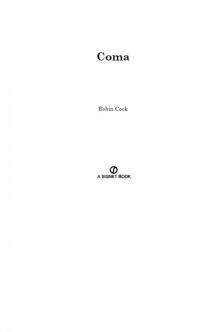 Coma
Coma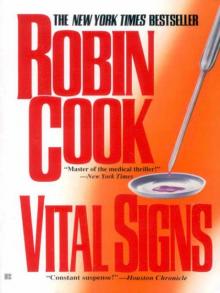 Vital Signs
Vital Signs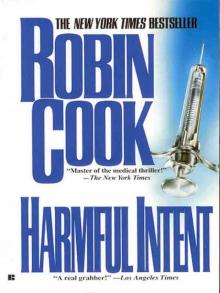 Harmful Intent
Harmful Intent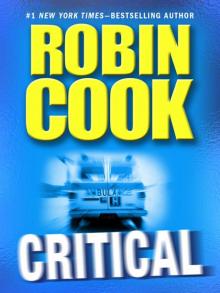 Critical
Critical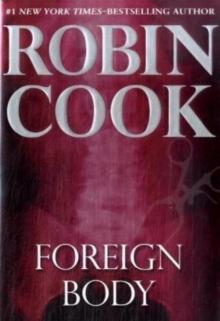 Foreign Body
Foreign Body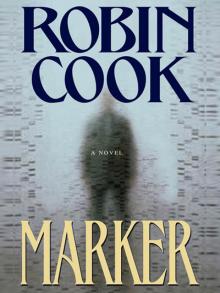 Marker
Marker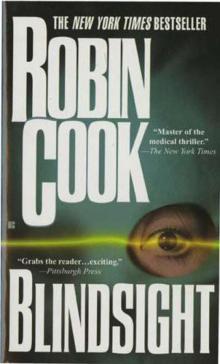 Blindsight
Blindsight Terminal
Terminal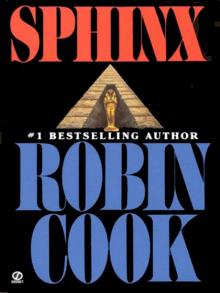 Sphinx
Sphinx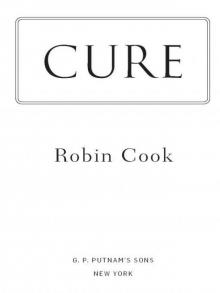 Fatal Cure
Fatal Cure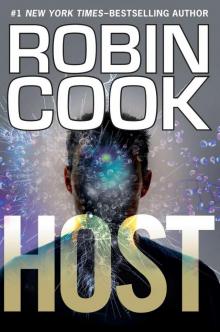 Host
Host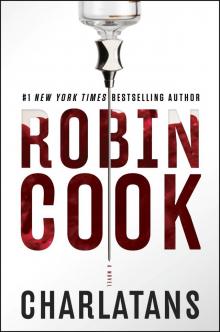 Charlatans
Charlatans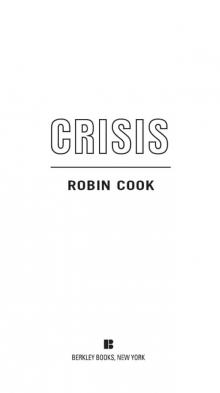 Crisis
Crisis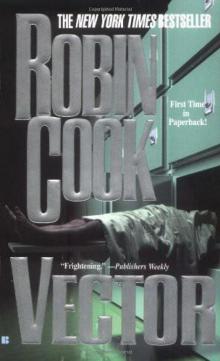 Vector
Vector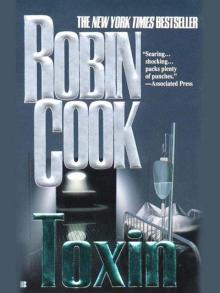 Toxin
Toxin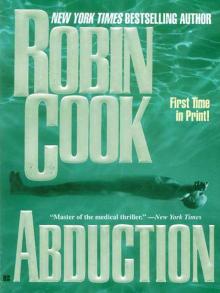 Abduction
Abduction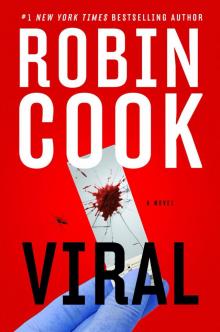 Viral
Viral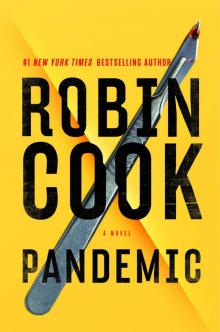 Pandemic
Pandemic Outbreak
Outbreak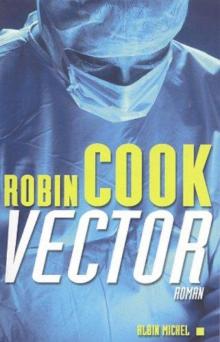 Vector js&lm-4
Vector js&lm-4 Godplayer
Godplayer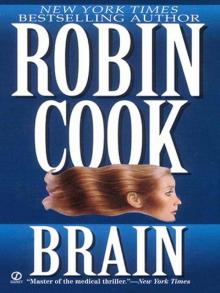 A Brain
A Brain Year of the Intern
Year of the Intern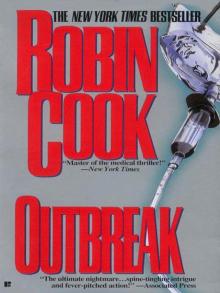 Outbreak dmb-1
Outbreak dmb-1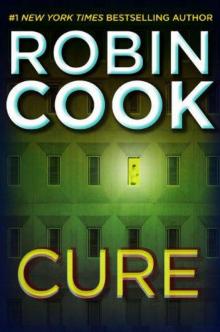 Cure
Cure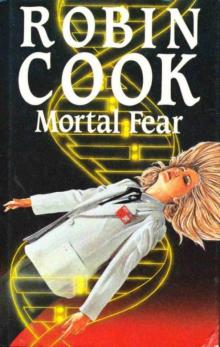 Mortal Fear
Mortal Fear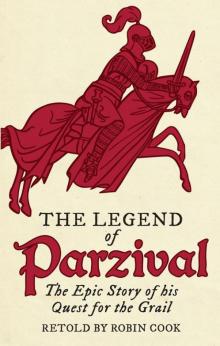 The Legend of Parzival
The Legend of Parzival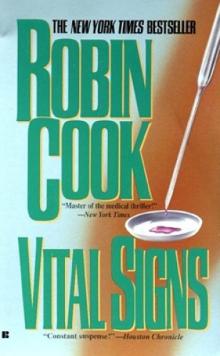 Vital Signs dmb-2
Vital Signs dmb-2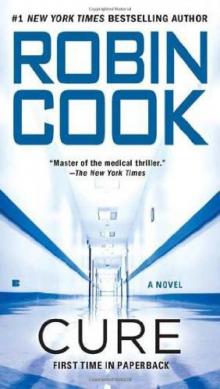 Cure (2010) sam-10
Cure (2010) sam-10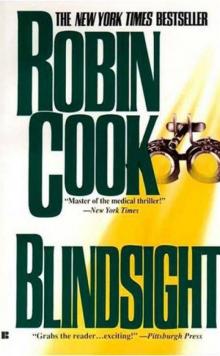 Blindsight sam-1
Blindsight sam-1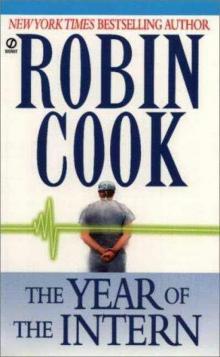 The Year of the Intern
The Year of the Intern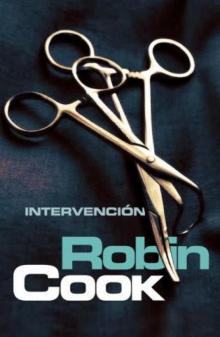 Intervention sam-9
Intervention sam-9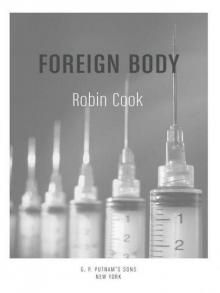 Foreign Body sam-8
Foreign Body sam-8